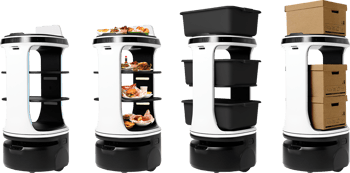The nation’s restaurant industry has some of the highest rates of underinsured and uninsured workers. In 2021, only 32% of private sector hospitality and leisure workers reported having access to healthcare coverage, according to the U.S. Bureau of Labor Statistics. Operating on thin margins, historically many operators haven’t offered health insurance. And even when they do, many employees feel they can’t afford to opt in.
“If the principal is $450 per person and your company is contributing 50%, which is usual [in the industry] for national healthcare coverage, you’re left taking $225 out of your paycheck, and a lot of people can’t justify that. It leaves people very vulnerable,” says Elizabeth Tilton, founder and CEO of Oyster Sunday, a company that provides operational, human resources, and branding support to restaurants. “You also have to have a high enough participation to even get coverage as a small business, so ultimately we’re really stuck.”
Seeing this gaping problem in the industry, Tilton set out to find a solution, both for her own restaurant clients and also restaurants at large. It led Tilton on a two-year journey to form partnerships with vendors nationwide, eventually culminating in the launch of the OS Benefits Program. Launched in January, the program’s designed to give foodservice professionals access to preventive care, mental health, and family planning services, as well as goods and services relevant to the industry, like continuing education and culinary tools – all at discounted rates.
Oyster Sunday Partnership Program
Oyster Sunday partnerships include those with companies like Sesame (telehealth), Kleer (dental care), ClassPass (fitness classes), UrbanSitter (babysitting/caregiving), and Tilit (retail chefware). In total, members receive access to 20 different vendors, each offering pre-negotiated rates that reduce the prices of services by 15% to 50%.
“As we were reopening during COVID, we wanted to commit to creating a better work environment for people, and health is super important,” says Ali Grieb, COO of New Orleans restaurant group LeBlanc + Smith, one of the first participants of the program. “This isn’t total health insurance, but it’s such an incredible resource for people who feel like they aren't able to pay for the insurance we offer. There are a lot of preventative options, too, like gym memberships, and it's just been nice to shift the focus from being reactive to proactive.”
Currently, any U.S.-based restaurant operator can sign up. Costs average around $3 per employee per month, or roughly $36 per employee per year, which Tilton points out nets at just 2.4 hours of a $15 minimum wage in California. Oyster Sunday has on-boarded 35 restaurants into the program in its first four months. And Tilton expects to continue to grow, seeing the program as a meaningful tool for employee recruitment and retention in what’s a clearly challenging market.
Post-COVID compensation
“In a post-COVID world, after teams were left exposed, people don’t want to have to choose anymore between health and compensation, and they’re going to find alternatives and companies who are going to care for them,” says Tilton. “More employers are really having to make some hard financial decisions on how to make [offering benefits] viable.”
Tilton states firmly, however, that the OS Benefits Program isn’t a substitute for health insurance, but instead is intended to be a “complement in cases when teams are under or uninsured”. However, she does acknowledge that unfortunately small-group health insurance plans are often simply deemed too cost prohibitive by operators. The program is designed to alleviate the financial constraints of both employers and employees, and when viable, Oyster Sunday strives to connect operators to insurance options, too, providing resources on how to get started.
Moving forward, Tilton hopes the industry can find a way to work together and gain more leveraging power within the U.S. healthcare system.
The Bottom Line
“I always joke that independent restaurants are a group of pirates, out on their own ships. But I think we need to figure out how to become a fleet and have negotiating powers as a collective unit,” says Tilton. “If we did have that, we could probably find a creative way of covering people.”
Grace Dickinson is a reporter at Back of House. Send tips or inquiries to grace@backofhouse.io.





